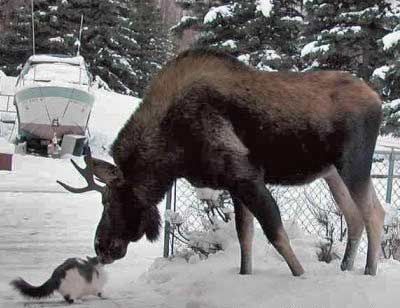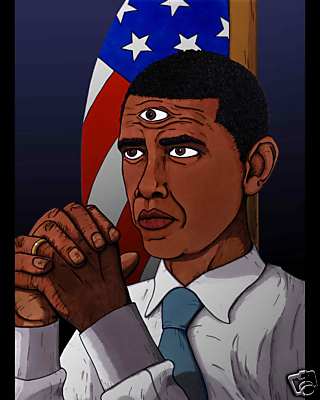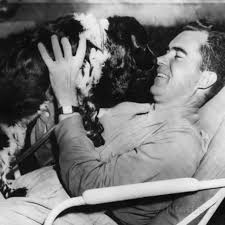Louis Adamic October 1930 American Mercury
“That evening a messenger came to the IWW headquarters with a request from the President for our delegation to call on him at ten-thirty the next morning and, if we desired, to present our petition.
“Of course we informed the messenger that we’d be there. Then we quickly made up a delegation of five men, including two ex-soldiers and myself. The ex-service men wore overseas caps and others parts of the uniform; one had a wound stripe on his sleeve, and we made him Number One of the delegation. He was to present the petition. He name was Harry Link. Each one of us was supposed to make a little speech, and we rehearsed half the night.
“At ten-twenty-five the next morning — Sunday — the five of us went to the swell hotel where Wilson was staying. The place was all in flags. A couple of sentries stood at the entrance of the lobby.
“A young Army officer in a snappy uniform — boots, spurs, Sam Brown belt and saber — met us in the doorway. I guess he was waiting for us. He gave us the once-over, especially the ex-soldiers.
“‘You are –?’ he began to ask.
“‘We are a delegation of the Industrial Workers of the World.’ said Harry Link. ‘We have an appointment with the President.’
“Then newspaper men began to crowd around us, and the officer quickly ordered us to follow him. We went up an elevator, and then through a corridor, which was banked with flowers, with a couple of soldiers hanging around.
“We entered a small room and the officer asked us to sit down. His neat military appearance was in sharp contrast with our own. He kept on eyeing us.
“We were in the presidential suite. We sat there about ten or fifteen minutes. Nobody said a word. Somewhere we could hear the clicking of a typewriter.
“Then a door opened and a civilian secretary or Secret Service man advanced to us briskly. He looked us over and took our names. Then he said: ‘Come this way, please,’ in a crisp official tone of voice. He looked like a floorwalker.
“He led us into a great big room. Right near the door was a tremendous basket of flowers, and the rest of the delegation sort of crowded me against it. The top of a fern leaf tickled me under the nose.
“‘Step this way please,’ said the floorwalker, and we all moved toward the center of the room.
“Wilson stood by a long heavy table, his left hand holding the edge of the table top. I had a funny feeling that I can’t quite describe to you. I was sort of mixed up, maybe because the fern had tickeled my nose and I had almost overturned the flower basket.
“Wilson looked small. I had an idea he was taller. His face was long and his head seemed to be heavy on his neck. And he looked old — just old.
“Now he sort of took a step toward us and said: ‘Good morning.’Â One of the delegation insisted afterward that he said:Â ‘Good morning, gentlemen,’ but I think he said merely ‘Good morning.’
“He shook hands with us. His hands felt dry and shaky in mine, like nothing much. His voice sort of shook. He evidentally was under a great strain. He could scarcely look the two ex-soldiers in the face. I believe he thought that I was an ex-soldier, too, because of my lame leg; he hardly looked at me either.
“After shaking our hands, he stepped back to the table and leaned on it with his left hand.
“I was sort of sorry for him. I wondered if he was still under the effects of our demonstration on him the day before. I almost wished we hadn’t pulled it.
“Well, we stood there before Wilson, the five of us, all of us, I guess, feeling pretty nervous. Harry Link held the petition in his hand and shifted the wight of his body from one foot to the other. He was a great big six-footer and built like an ox; had been wounded in the war.
“Wilson then nodded to the floorwalker, who stood to one side, and the floorwalker withdrew.
“I guess Wilson waited for us to speak, and there was a long and awkward silence. Harry Link cleared his throat and was going to speak, but couldn’t. Instead, he just handed Wilson the petition. Wilson took it. His hand shook pretty badly. Harry cleared his throat again, but couldn’t get a word out. It was awful. I felt the blood rushing to my face.
“Wilson didn’t look at any of us, only at Harry Link for a second. Then, when Harry said nothing, Wilson placed the petition on the table and said something to the effect that he would read it immediately. I don’t remember his exact words. I watched his face, which looked very bad — long and gray. His long narrow jaw moved up and down, and his voice, while fairly clear, was sort of unnatural, or so it seemed to me. Perhaps the acoustics of the big room made it sound the way. I can’t quite describe it. I remember it vaguely. The whole experience was a little fantastic, unreal.
“According to the rehersals the night beore, each of us was supposed to make a speech, but I was the only one who managed to say anything. There was another long silence, and then I said: “Mr. President, attached to the petition are the signatures of over one thousand of our fellow workers, all of them citizens of the United States. We could have secured ten thousand signatures, but until last night we thought we would not be allowed to present the petition to you.’
“Wilson looked at me for a moment. Then he said that he was sorry that obstacles had been placed in our way when we had first planned to call on him. He added that he had been displeased upon hearing of the local reception committee’s decision to bar us from him. His voice shook. His right hand shook, too, until he finally gripped the lapel of his coat.
“I almost wished I hadn’t come along with the delegation. Man, but I felt lousy! My own voice, when I spoke, sounded strange in that big room. I was pretty well balled up, standing under that high ceiling, the thick, soft rug under my feet, feeling sorry for Wilson. I barely heard what he said; later I had to check on his words with the other four men. They were all mixed up too.
“I was supposed to have said: ‘. . . all of them citizens of the United States, and, Sir, many of them ex-soldiers and ex-sailors who have served in the war to make the world safe for democracy.’ But I forgot to say that last part. I’m glad I did; there was no use rubbing it in about making the world safe for democracy, though, of course, at the time I wasn’t thinking of that. I had spoken at hundreds of workers’ meetings, but now I was all mixed up.
“Wilson looked pretty bad, but perhaps he was the leasst flustered man in the room — that is, outwardly. Inwardly, I’m sure he was worse off then all five of us put together. I think it took all his self-control to keep his chin up.
“A couple of times during the interview he closed his eyes for a few moments and there was a little muscular movement on his face. With his eyes closed he looked even worse than when he had them open.
“I don’t believe we were in there more than four or five minutes, and I was glad when it was over. Towards the last I felt sort of weak all over and dizzy in my head. It was the goddamnedest experience I ever had.
“Finally, the door opened and in came the floorwalker and stopped at the door, near the flower basket.
“Then Wilson again shook hands with us. He said, “Thank you,’ and we went out. I saw him take a few steps after us, then he stopped in the middle of the big carpet and bowed a little. He looked like a ghost.
“The floorwalker and the Army officer got us out into the corridor, which was full of newspaper men. They wanted to know our names. What? … why? … when? They fired questions at us. But I said the other four not to talk; to hell with them.
“We got out in the street and jumped in a street car. I almost missed it because, with my leg, I couldn’t walk as fast as the others.
“‘Christ almight!’ said Harry Link. He was sweating, although it wasn’t hot at all.
“We couldn’t talk about it for an hour or more. We had been before the President of the United States– and what a mess he was! A pale old man standing in the middle of a big room, under a high ceiling, with a bowed head.
“Everything was a mess. The whole country. I thought to myself that Wilson, in his fine cutaway coat and striped pants, and we, in our working clothes, were just the opposite poles of the same mess. Here in that luxurious hotel-room, we suddenly met for a few minutes and — well, I don’t know. It was pretty queer, the whole thing, believe me. I had no feeling against him. I only thought what a mess he was. A goddamn tragedy — the President of the United States, the most powerful ruler on earth, but unable to do anything for us — the workers — although I don’t doubt now that in his heart he was for us. He couldn’t do anything about the biggest problem in the country, in the world — the problem of the distribution of wealth. Helpless — the President of the United States. Nobody could do anything.
“I felt like two cents for pulling that demonstration on him the day before. I was my idea. It was as unfair to him to pull a thing like that on him as it was for the capitalists to exploit us.



